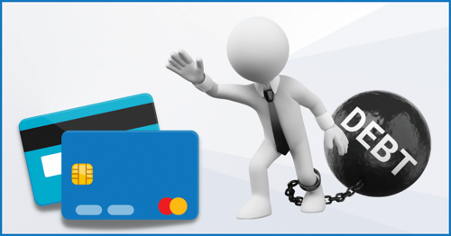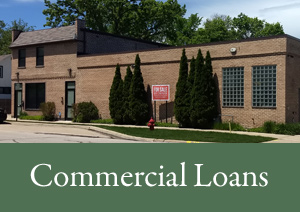Post
8 Things About Credit Card Debt You May Not Have Known

Credit card debt is a massive problem in the United States. In fact, it is now the highest form of consumer debt. According to a study by NerdWallet, credit card debt averages $5,944 per household. That’s a lot of money. If you are one of the millions of Americans struggling with credit card debt, you may wonder what to do about it. In this blog post, we will discuss 8 things about credit card debt that you may not have known. We hope that this information will help you get on track to becoming debt-free.
What is Credit Card Debt?
Credit card debt is the amount of money you owe on your credit cards. This includes unpaid balances, late fees, and interest charges associated with those cards. Credit card debt can quickly accumulate if you are not careful about making payments on time or overspending with your credit cards.
It is important to note that credit card debt is not the same as other forms of debt, such as student loan debt or mortgage debt. Unlike those types of loans, credit cards are considered unsecured debts because they do not require collateral to be issued. Therefore, if you fail to make payments on time, creditors can take legal action against you without having any physical property to back up their claim.
When it comes to credit card debt, the key is to pay off as much of your balance as you can each month before any interest and late fees start piling up. This will help keep your overall balance down and make it easier for you to get out of debt reasonably.
A few Key Things About Credit Card Debt You Should Know

Awareness of a few critical things about credit card debt is essential. Here are the 8 things about credit card debt:
1. Late Payment Penalties
Many credit card companies charge a late payment penalty if you fail to make the minimum required payment on time. The fee is typically around $15 to $35 and can be charged multiple times for each missed payment. This fee can add up quickly, so always paying your bills on time is essential. In addition, if you habitually pay your bills late, it could significantly increase the amount of debt you owe.
2. Minimum Payment Trap
The minimum payment on your credit card can seem manageable, but it’s important to remember that the minimum amount does not always cover the entire balance of your debt. This means that if you only make the minimum payments, you could pay significantly more in interest as time passes. Therefore, spending above the minimum is best to reduce your overall debt.
3. Credit Score Impact
Your credit score is an important factor when it comes to borrowing money, and your credit card debt can significantly impact your score. High levels of debt can cause your score to drop, making it more difficult for you to get approved for loans or new credit cards in the future. Therefore, paying down your debt as soon as possible is important to minimize its effect on your credit score.
4. Interest Rates
Credit card debt comes with a hefty price tag. The average interest rate for credit cards is typically between 14-25% APR, depending on your credit score and the type of card you have. If you carry a balance from one month to the next, you will be charged this amount and any fees associated with the purchase.
In addition, many credit cards have a penalty APR that can be applied if you miss a payment or are over your limit. This rate is typically even higher than the regular interest rate and can significantly impact how quickly you pay off your debt.
Another important thing to be aware of is that interest rates on credit cards can change. Many issuers will periodically review your account and adjust the APR accordingly. This means that carrying a balance could become more expensive depending on how the issuer has changed the rate. Therefore, it is important to be aware of any changes that may occur so you can plan accordingly.
5. Balance Transfer Fees
One of the lesser-known facts about credit card debt is that balance transfers typically come with a fee. This fee can range anywhere from three to five per cent of the amount transferred and is usually added to your total balance.
Although this may seem like an insignificant cost initially, it can add up quickly depending on how much debt you transfer. Therefore, it is essential to read the fine print of any balance transfer offer and understand what fees may be involved before you make your decision.
Another thing to consider when transferring credit card debt is that there will likely be a limit on how much you can transfer. If you have too much debt, it may not all fit onto one card. It is important to be aware of this to ensure that your entire balance will fit onto the card you are transferring it to and avoid any surprises down the road.
6. Cash Advance Fees
Cash advance fees are one of the biggest traps that many credit card users fall into. When you take out a cash advance, you may be charged interest immediately and incur additional charges. These fees can quickly add up and make your debt much more expensive than it needs to be. It’s important to understand your credit card terms before taking out a cash advance, as doing so can save you from expensive fees.
Another thing to avoid when using credit cards is carrying a balance for too long. When you have a balance on your card, the interest continues to accrue and will add up quickly if unpaid. Paying off your balance in full each month can help you avoid this and save you from unnecessary debt. Additionally, many credit cards offer rewards for paying your bill on time, so you are preventing expensive fees and potentially earning rewards.
7. Debt Consolidation
Debt consolidation is another option to consider if you are struggling with credit card debt. This involves combining multiple debts into one loan or payment plan, which can help simplify your payments and make them more manageable.
Debt consolidation can also lower the interest rate you pay on your debt and reduce the number of fees associated with it. Researching and comparing different options is important before deciding on a debt consolidation plan.
Finally, knowing any fees associated with closing a credit card account is important. Closing an account can adversely affect your credit score and incur additional costs from the issuer if you still owe money. Make sure you know any fees before closing an account and understand their implications on your credit score.
8. Credit Counseling
Another option for managing credit card debt is to speak to a credit counselor. Credit counselors can help you analyze your financial situation and develop the best plan.
They can also provide resources and advice on managing your money better to prevent further debt from accumulating. Finding a reputable credit counseling agency certified by the National Foundation for Credit Counseling is crucial to ensure you receive quality advice.
These are just a few of the many things you may not have known about credit card debt. Before making any significant changes, it is essential to be aware of all your options and understand how different decisions can affect your financial situation. Taking the time to educate yourself on credit card debt can help you make smarter decisions and prevent any surprises in the future.
December 30th, 2022 by Herb Levin
No comments yet




